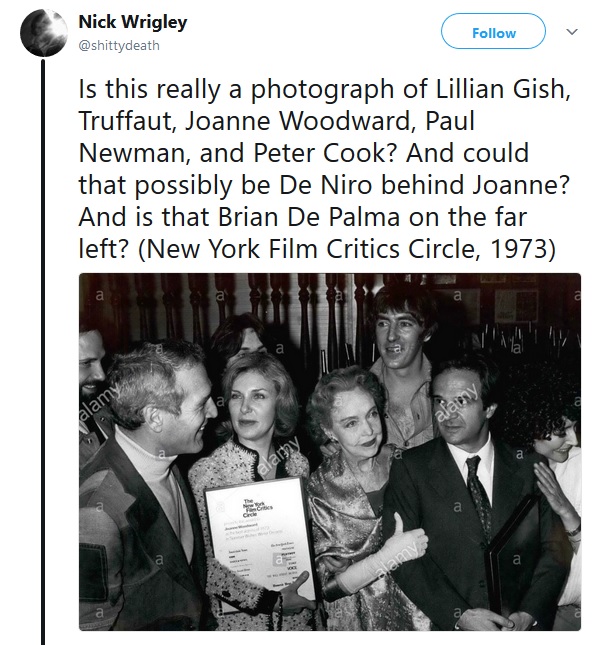April Wolfe: So I wanted to talk a little bit about these extras scenes. Barbara Crampton: Yeah...
April: It's one of the things that we actually rarely talk about when it comes to Raw, but it makes it so, so good, and something you brought up, when they do the hazing rituals...
Barbara: Right...
April: Ducournau personally cast all three hundred of them.
Barbara: No way...
April: Yes. Exactly. So you hear Barbara's shock at that-- that doesn't happen. There's usually a casting person who does the extras casting.
Barbara: Yeah (laughing), it's whoever's available.
April: Yes!
Barbara: Because you don't get paid a lot!
April: No! So she personally cast all three hundred of these extras-- like, she was single-handedly constructing this veterinary school. She said she tried to keep their characters in mind, and use them in scenes that would fit with how they had appeared in other scenes, really building their characters. And, you know, it made for a better, fuller film. It felt realistic.
Barbara: Yeah.
April: But also, it was a way to get the extras invested in the film, because they would have to be there for the full 37 days of shooting, which is a huge undertaking if you're an extra.
Barbara: Oh my God, yeah, you want to feel like you're a part of the project. That's so smart!
April: It is! And I thought it's honestly so wonderful when a director takes that kind of care with every actor on set, no matter...
Barbara: Who they are-- yeah...
April: Exactly. Even if you have a small part. I was thinking in terms of your role in De Palma's Body Double.
Barbara: Mmm-hmm...
April: Because I had read some interviews with you where you had said that, like, they did so many takes, and he was so interested in getting the scene right, and you got to work with him on so many things. And even if some of that stuff got cut out, you were still, you know, working towards kind of a perfect moment.
Barbara: We actually did that scene all day. I mean it was all day. From different angles. Forty takes from all different angles. It was hundreds of takes. It was incredible. I will say, when I first got that film, there were two other scenes in the movie that I had dialogue in. And the night before I was to start shooting, I got a call: "Oh, oops, they cut the dialogue scenes. You only have this one scene with Craig Wasson in bed." And I thought, hmm... was this on purpose? Or, is this legitimate? But it's Brian De Palma, so I should work with him, and it was great to be with him on set, and I did it and it was super fun.
April: It was really early in your career, too.
Barbara: I think it was like the first thing I actually did on film, because I was on Days Of Our Lives for about a year, and that was my first job, and I think that was my second job.
April: What do you think you learned from that set?
Barbara: To relax, and to just have no fear. I mean, that was the first thing... because everybody was just kind of laissez-faire in a way. You know, when you're making a movie, and I just said, oh, you have to hurry up, you have to go, and you have to be right on point, and you do... and I'm sure even on a film like that, you have to be on point, but it felt like I... I could see the other actors who were on set, they... they were really calm. And relaxed, and I think you want to feel secure, and centered, and it was nice to see everybody on set just, you know, doing their job, but, and fast, but relaxed. You have to be relaxed.
April: [laughter]
Barbara: Well, I like relaxing, so that's good for me to be reminded of that all the time.
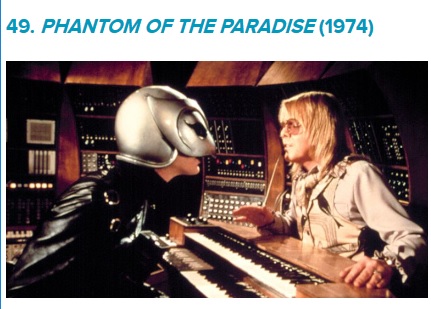 Last week, Consequence Of Sound posted its list of "The 50 Greatest Rock and Roll Movies of All Time." Phantom Of The Paradise made the list at number 49 (Edgar Wright's Baby Driver is number 50). "Phantom of the Paradise is Brian De Palma’s most whimsical and traditionally funny film," states CoS' Mike Vanderbilt in the film's entry blurb. "Good rock and roll has a sense of humor amid the cynicism and melodrama of the music. Phantom sardonically skewers the music industry, turning a record contract into a Faustian deal with the devil. Paul Williams brilliantly plays against type as the evil Swan and provides a wonderfully bizarre collection of tunes for the soundtrack, featuring faux ‘50s nostalgia with “Goodbye, Eddie, Goodbye”, the Linda Ronstadt-style country-tinged pop of “Special to Me”, the glammy “Life at Last”, and the gloriously cynical closer, “The Hell of It”.
Last week, Consequence Of Sound posted its list of "The 50 Greatest Rock and Roll Movies of All Time." Phantom Of The Paradise made the list at number 49 (Edgar Wright's Baby Driver is number 50). "Phantom of the Paradise is Brian De Palma’s most whimsical and traditionally funny film," states CoS' Mike Vanderbilt in the film's entry blurb. "Good rock and roll has a sense of humor amid the cynicism and melodrama of the music. Phantom sardonically skewers the music industry, turning a record contract into a Faustian deal with the devil. Paul Williams brilliantly plays against type as the evil Swan and provides a wonderfully bizarre collection of tunes for the soundtrack, featuring faux ‘50s nostalgia with “Goodbye, Eddie, Goodbye”, the Linda Ronstadt-style country-tinged pop of “Special to Me”, the glammy “Life at Last”, and the gloriously cynical closer, “The Hell of It”.



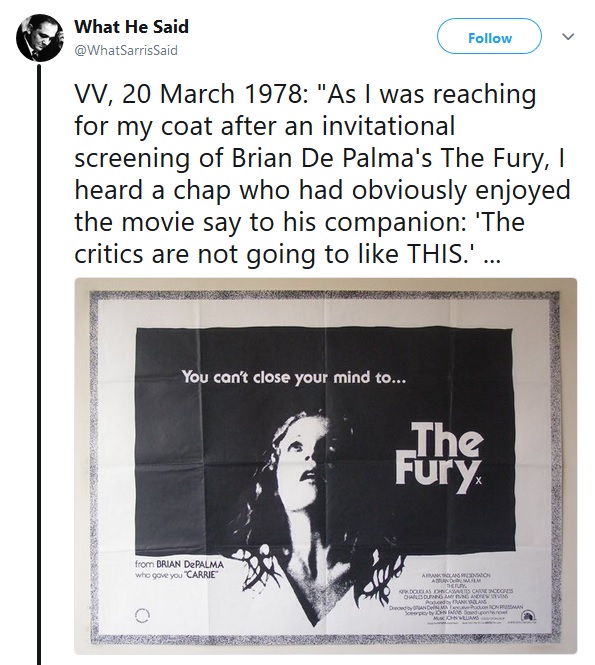
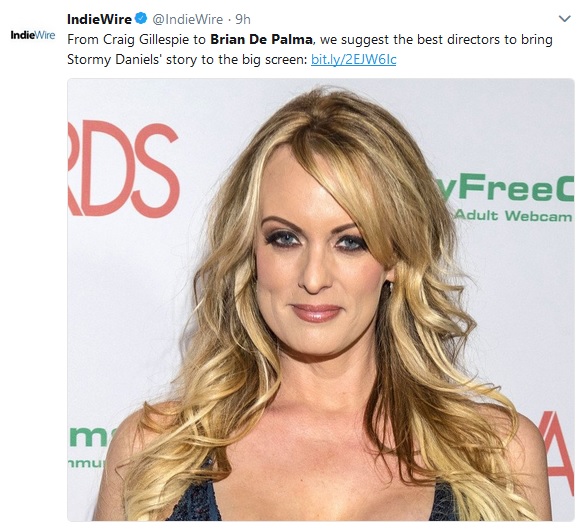

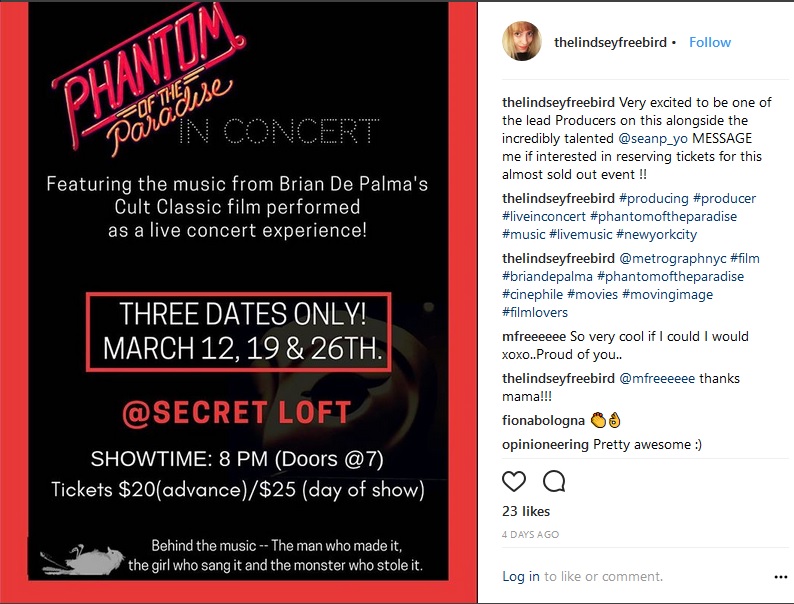
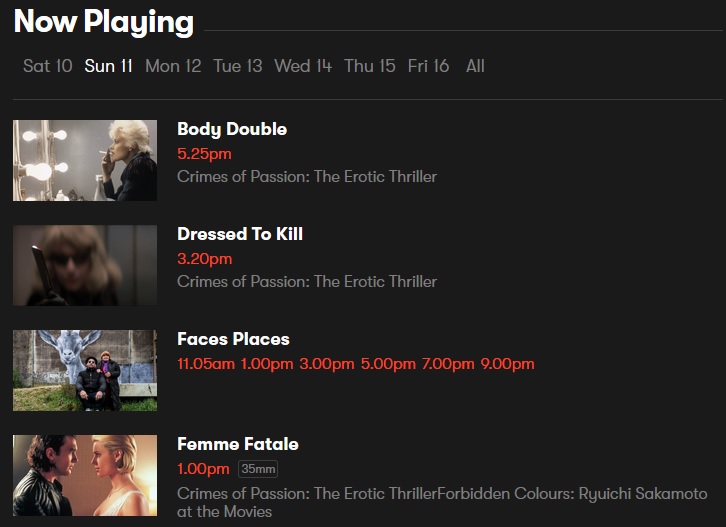
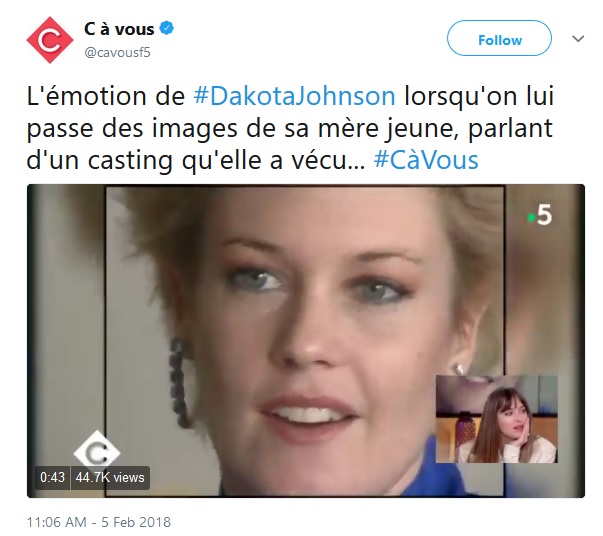
 Jordan Peele talks to the
Jordan Peele talks to the  Barbara Crampton joins film critic/filmmaker April Wolfe to discuss Julia Ducournau's Raw on the latest episode of the podcast
Barbara Crampton joins film critic/filmmaker April Wolfe to discuss Julia Ducournau's Raw on the latest episode of the podcast 